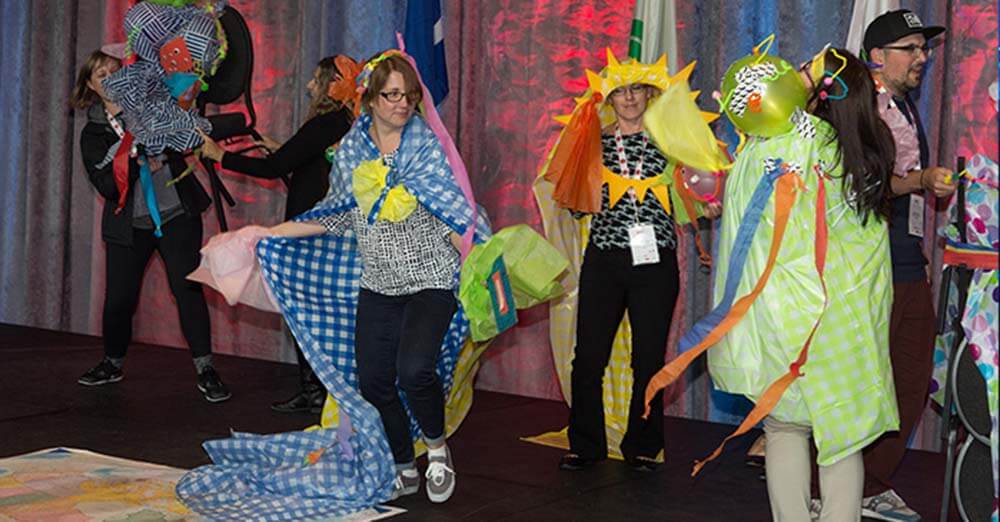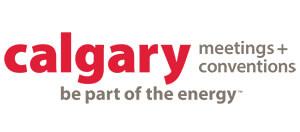
Calgary hosted the 20th International Play Association Triennial World Conference at the Calgary TELUS Convention Centre Sept. 13-17.
Four years ago, someone approached Heather Cowie, manager of recreation for the north and east region for the City of Calgary, about hosting the International Play Association (IPA) conference in Calgary. She knew nothing about IPA’s mission, which prompted that person to respond: “That’s exactly why you need to host this conference.”
She and her team immediately began learning more about the organization’s mission and quickly realized they not only wanted to host the conference, but they wanted to ensure the impact lasted well beyond the four days of events. “I don’t want to just do a conference,” Cowie remembered her boss saying at the time. “I want to do something that’s meaningful.”
So Calgary partnered with IPA Canada this year to host its 20th IPA Triennial World Conference, held at the Calgary TELUS Convention Centre Sept. 13-17. IPA is an organization dedicated to securing “every child’s right to play and to promote healthy, high quality play opportunities and environments,” according to its site. Its annual conference brings together thousands of play researchers, advocates, designers, educators, practitioners, providers, and policymakers from around the world. In Calgary this past September, the conference featured more than 450 speakers, and hosted sessions on topics like the mental-health consequences of a lack of play time and how children can make space to play in times of crisis.
There’s been a steady decline in “children’s free play” since about 1955, according to Peter Gray, Ph.D., professor emeritus of psychology at Boston College. That, he told The Atlantic, is partly “because adults have exerted ever-increasing control over children’s activities.” Without enough free play — when children are directing their own activities, unsupervised — kids are more prone to anxiety, depression, and issues with attention and self-control.
“It’s so important for kids to play and go outside and have child-directed play rather than adult-facilitated, so that they can test their own boundaries and take their own risks,” Cowie said. “You learn so many things about yourself… [including] how to negotiate with other people. It’s physical, it’s emotional, it’s fun.”
Having an Impact
When ParticipACTION released its 2015 report card grading the physical activity levels of children in Canada, the country received a D-. “Which is crazy, because we’re going to outlive our kids,” Cowie said. “Our kids just aren’t active enough.” One simple way to get them moving, Cowie said, is getting them outside, where she says they’re 35 percent more active. This prompted the City of Calgary to implement a Mobile Adventure Playground program. The pop-up play area relocates to different public parks every summer. There are adult supervisors for safety precautions, but kids are encouraged to play and experiment on their own.
These kids had A LOT of fun yesterday at our Mobile Adventure Playground. Join us for more muddy fun today at North Glenmore Park till 4pm. pic.twitter.com/ulaJw2hXyL
— City of Calgary (@cityofcalgary) July 14, 2017
Hosting IPA’s conference also galvanized Calgary to create what they’re calling a play charter. “Rather than the city of Calgary doing a play policy, we’re doing a charter that’s collaborative in nature, to say why is play important, what are we going to do about it, and who’s going to do something,” Cowie said. About 30 organizations came together at the IPA Triennial World Conference to sign the charter and commit “to do something about play in the next year.”
IPA utilized the 122,000 square feet of convention space and the 47,000 square feet of exhibit space at the Calgary TELUS Convention center to incorporate play into the conference. “We chose the TELUS Convention Centre for a number of reasons,” Cowie said. “The venue is amazing in terms of the types of spaces, from large plenary space to breakout rooms to offices for our volunteers.” The location was also key, as organizers wanted something “close to all different kinds of amenities that our delegates could walk to” and also near City Hall, “so that our elected officials would understand what we were doing and it was good access for them to come see what was happening.”
The IPA Triennial World Conference was a way for play professionals to gain new perspectives. “Where we all are in the world with play is very different,” Cowie said. “An international conference gives you different perspectives, gives you different learnings, gives you different contexts. Certainly, contexts are different all over the world, but there’s nuggets of information and knowledge that you can get when you have an international conference.”
When Cowie and her team first started this journey, they didn’t fully understand the concept of play, but now, she said, “every time we get together with the organizations that we partner with, I believe we get smarter. For me, that’s what the conference is about. It’s an amazing learning opportunity.” Hosting IPA has inspired Cowie to continue to create play initiatives. “We’ve laid the foundation for legacy and we’re gonna keep going.”

